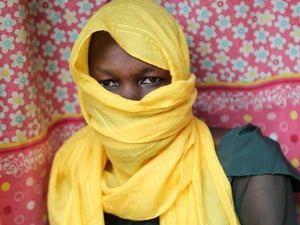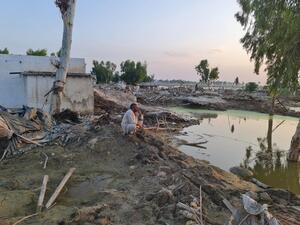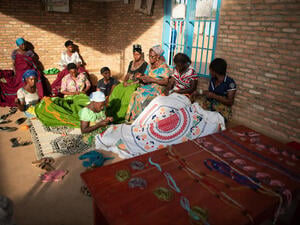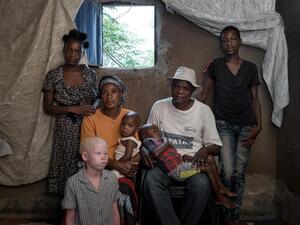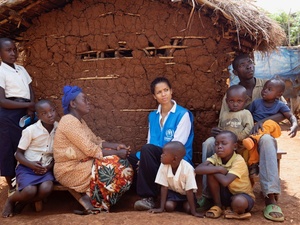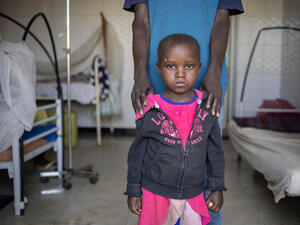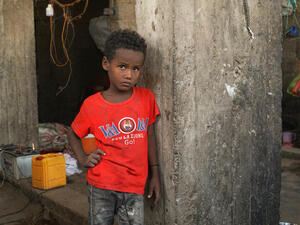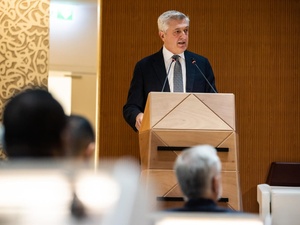Funding shortfall leaves refugees exposed
Funding shortfall leaves refugees exposed
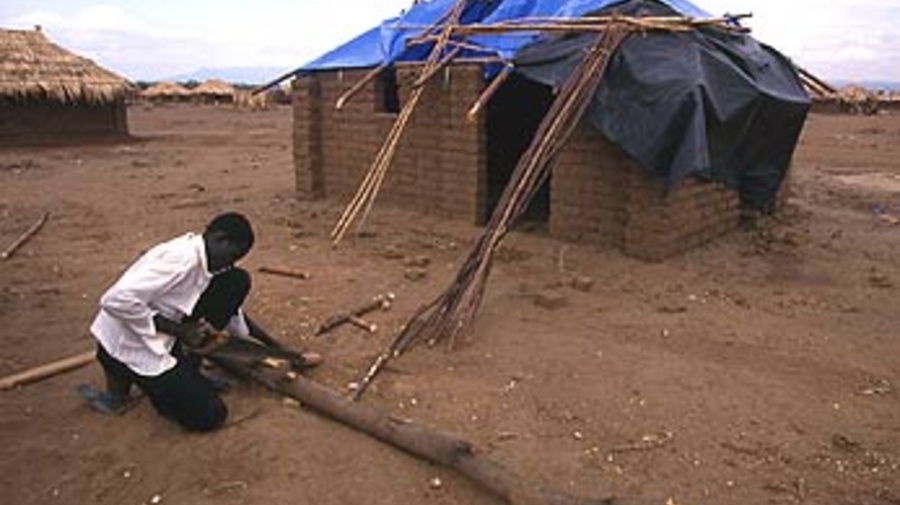
Kakuma's struggle to put a roof over their heads amidst funding shortfalls that have reduced the supply of firewood and other necessary relief aid.
KAKUMA, Kenya, November 14 (UNHCR) - Okello Omof, a 25-year-old father of three, has a very modest desire: to have, quite literally, a roof over his head. He already has the four walls, just no roof.
The Sudanese refugee, who has lived in the UN refugee agency's Kakuma camp in north-west Kenya for four years, made mud bricks himself to build a small but tidy house. UNHCR promised to provide a sheet-metal roof, but shortfalls in funding mean the camp had to halt its programme to provide roofs for the refugees' self-made mud-brick homes, most of which were built to replace 7,000 houses washed away in heavy rains a year ago.
"I would like to feel well," says Okello, standing inside his roofless house, where two women neighbours huddle in a tiny bit of shade in a corner. "The rain is now too much."
If it isn't rain, it's a merciless sun in this desolate landscape of near-desert terrain broken only by occasional bushes and scrub-brush. Until he gets a roof, Okello, his wife and children, ranging in age from nine months to eight years, have been living for more than a year in a small plastic tent provided by the UN refugee agency. His wife has made every effort to turn it into a home, even carving decorative motifs into the hardened mud wall that separates the cooking area from the sleeping quarters.
But it's scorching inside. "The children are not happy," says the father. "They come from school and it's too hot for them to read in the tent, and too hot outside as well."
Okello, and many other refugees in this camp housing than 84,000 people, are victims of the shortfall in contributions from donor countries that has forced the UN refugee agency to halt a number of its operations. UNHCR said in October that it needed $80 million by the end of the year to maintain at least minimum standards for refugees.
Over recent weeks, a number of states have come forward, including Belgium, Bermuda, Canada, France, Germany, Greece, Malaysia, Spain, Switzerland and the European Commission with new contributions, but another $54 million is still urgently needed.
In appealing to donors for contributions in October, both High Commissioner Ruud Lubbers and UN Secretary-General Kofi Annan said UNHCR's most pressing needs are in Africa.
In Kakuma, the shortfall means a reduction in supplies to meet even basic needs. Kofi Mable, the UNHCR official who runs Kakuma, says even meagre needs are not being met. "We are trying our level best," he says, expressing frustration at not being able adequately to meet all the refugees' needs.
Because of the funding shortfall, UNHCR recently cut the 30 kilogrammes of firewood it was giving each refugee family for cooking every month to 10 kilogrammes.
That leaves refugees with a heartbreaking choice - either to sell part of their food rations to buy firewood from local vendors, or risk being beaten or raped if they venture into surrounding private lands to chop their own wood.
Selling part of their rations "diminishes the food in the house, therefore it will contribute to malnutrition," says Mable. Already more than 63 percent of the refugees in Kakuma camp are underfed, he adds. "They simply are not getting enough to eat" because of inadequate funding. He's clearly upset at the refugees' plight: "If you are given $38 per annum per refugee, what can you do?"
Rebecca Achol, a 40-year-old Sudanese refugee struggling to feed six children, knows first-hand the hazards of searching for firewood. Her eyes flashing, she uses graphic hand motions to describe how a refugee man was cut on both arms while trying to protect her and two other women who were collecting firewood. A tall, regal woman in a colourful headscarf and lavender and blue geometric print blouse, she says she was severely beaten as well. She alleges that many other women she knows were raped while collecting firewood. "I beg UNHCR to bring us firewood," she pleads.
Rebecca says she is afraid to venture outside the camp now, and tells other women not to go in search of firewood. It's a futile warning, says fellow refugee Ujullu Okelo. "Even if we tell them not to go, conditions force them to go," he says grimly.
At Kakuma, the refugees are losing hope. One refugee man listens as a UNHCR worker talks to the Sudanese men and women about their plight, then interjects bitterly: "you will write this, but there will be no results."


